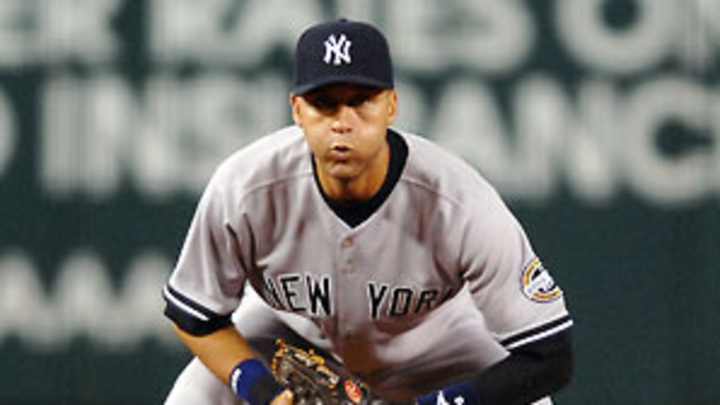Looks like Billy Beane is right: The playoffs really are a crapshoot


1) What are the chances that Fox gets its dream World Series matchup of Dodgers-Yankees, the teams that today have the two best records in baseball? The way this decade has gone, not very good at all.
The teams with the two best records haven't met in the Fall Classic this decade, and not since the strike-shortened 1995 season. In fact, this decade really has offered proof to Billy Beane's famous theorem that the playoffs are "a crapshoot." Regular-season success has almost nothing to do with how the postseason plays out.
Consider this: Suppose you "seeded" the playoff teams based on regular-season wins. (Unscientific, of course, because teams don't play the same schedules. But play along at home, folks, and try to have some fun here.) The team with the most wins would be the No. 1 seed, the team with the second most the No. 2 seed, and so on. Now let's look at a distribution pattern for this decade of which "seeds" won a pennant or the World Series:
It doesn't get much more random than that. You might as well roll an eight-sided die (or, in the case of the 2006 Cardinals, who had the 13th best record, a 13-sided one). I doubt you would find such randomness in the NFL or NBA. This decade, more teams with the worst record among playoff teams have won the World Series (2000 Yankees and 2006 Cardinals) than teams with the best record (2007 Red Sox).
So the next time an expert tells you that they know who is going to win the World Series because a certain team is "built for the postseason" or because of how well that team played in the regular season, don't believe it. As the chart shows, the postseason is incredibly random, partly because all the off days make for very different circumstances than teams find all year, but mostly because it's such a small sample. The best team doesn't always win the World Series -- or even anything close to most of the time. The hottest team wins it.
2) I had a really interesting chat the other day with Dodgers trainer Stan Conte, who is at the cutting edge of understanding and preventing injuries and is a big believer in using data as part of that process. Conte told me his research confirmed that there is validity to the so-called Verducci Effect, based on a rule of thumb I have advanced for years that pitchers are more prone to injury and regression if their innings workload takes a big jump before the age of 25. His research showed that once pitchers get outside that age window, they are less vulnerable to the effects of increased work. "It may just be Darwinism at that point," he said, "that the strongest survive."
But Conte is taking the research to another level. He has begun researching what factors within the under-25 age group present a greater risk. He first looked at body mass index, based on listed heights and weights, but found no conclusive link to BMI -- that is, the size of the pitcher didn't matter as a risk factor. Now he is taking a look at pitch counts rather than innings as the line of demarcation.
Conte also noted that next year MLB will institute a streamlined, centralized system for reporting injuries. It is Conte's wish, and a smart idea at that, that a database be compiled of those reported injuries to learn more about preventing and predicting injuries. Do pitchers who throw sliders suffer more elbow injuries? What's the recovery rate for pitchers who undergo shoulder procedures? Do pitchers drafted out of college present a greater injury risk than those drafted out of high school? Conte is on to something, but baseball needs to think collegially in this matter, which has never been its strong suit.
3) Did you happen to catch the way Clay Buchholz threw for the Red Sox on Thursday night? The right-hander several times hit 97 on the radar gun with his fastball, the hardest he has thrown all year. In fact, according to PITCHf/x, Buchholz's average fastball velocity in his previous five starts was between 92.5 and 93.6 mph. Against Kansas City Thursday it jumped to 95.3. And of course, that's not even his best pitch; it's the changeup.
It's time to think of Buchholz as a solid No. 3 starter, a good thing for Boston now that the John Smoltz, Brad Penny, Junichi Tazawa, Paul Byrd, et al experiments have run their course. In his past six starts Buchholz is 5-0 with a 1.32 ERA. And the kid is only getting stronger.
